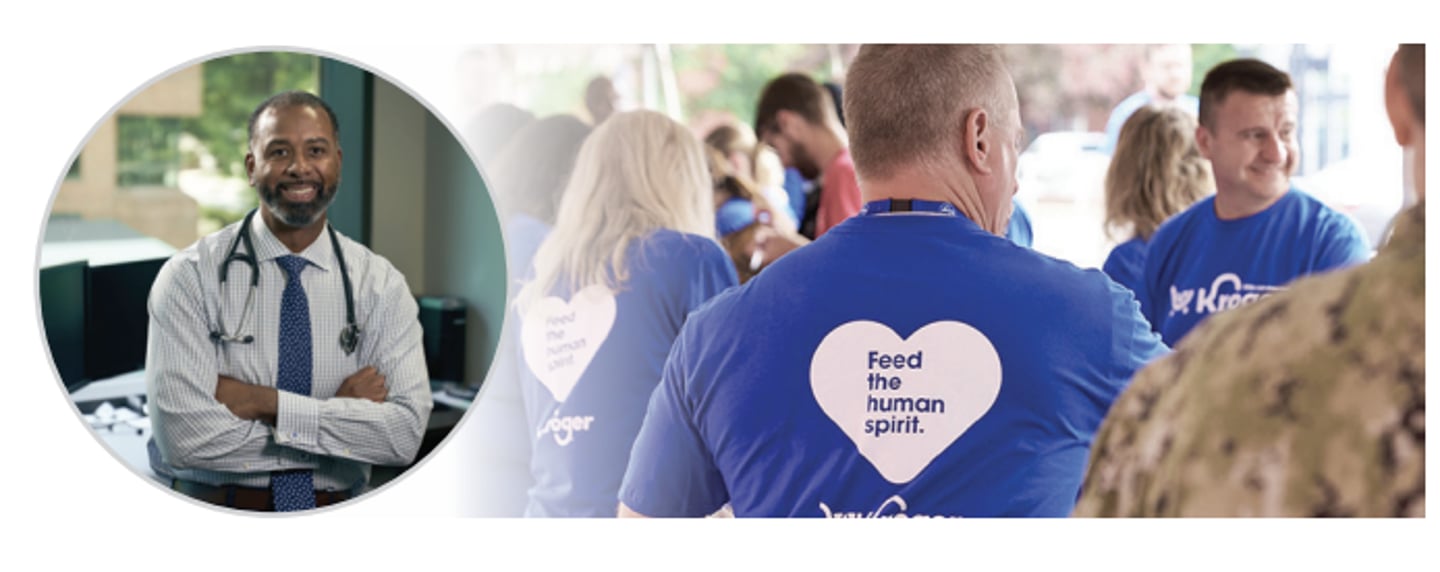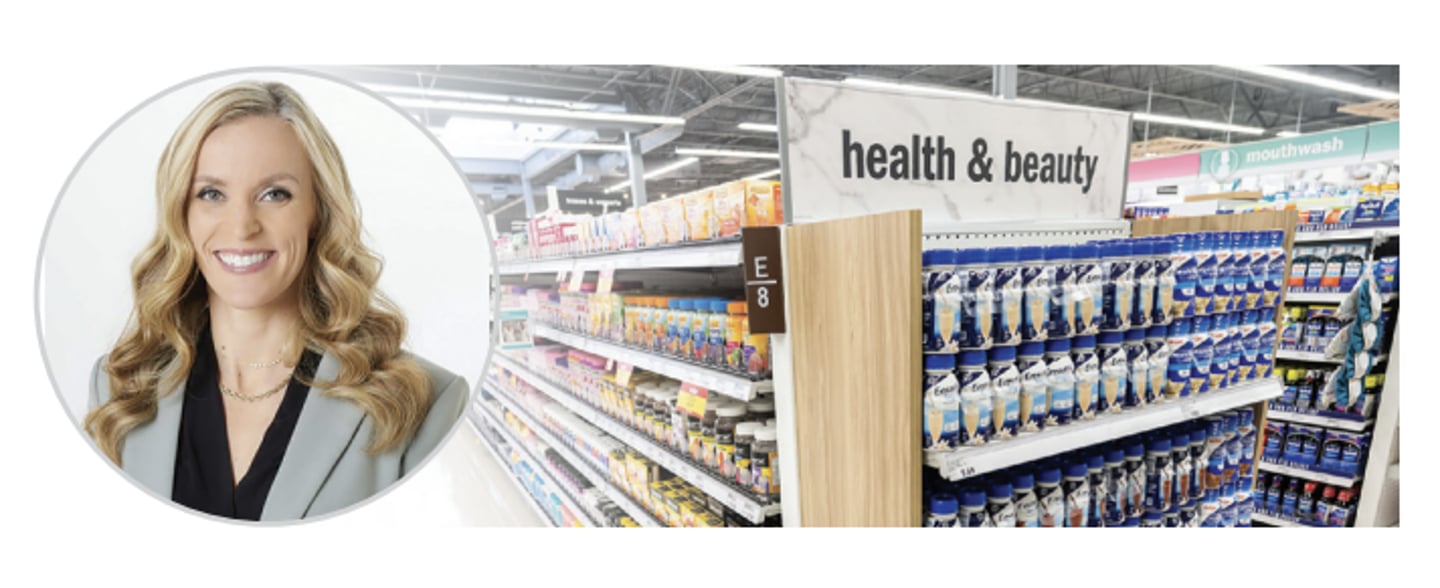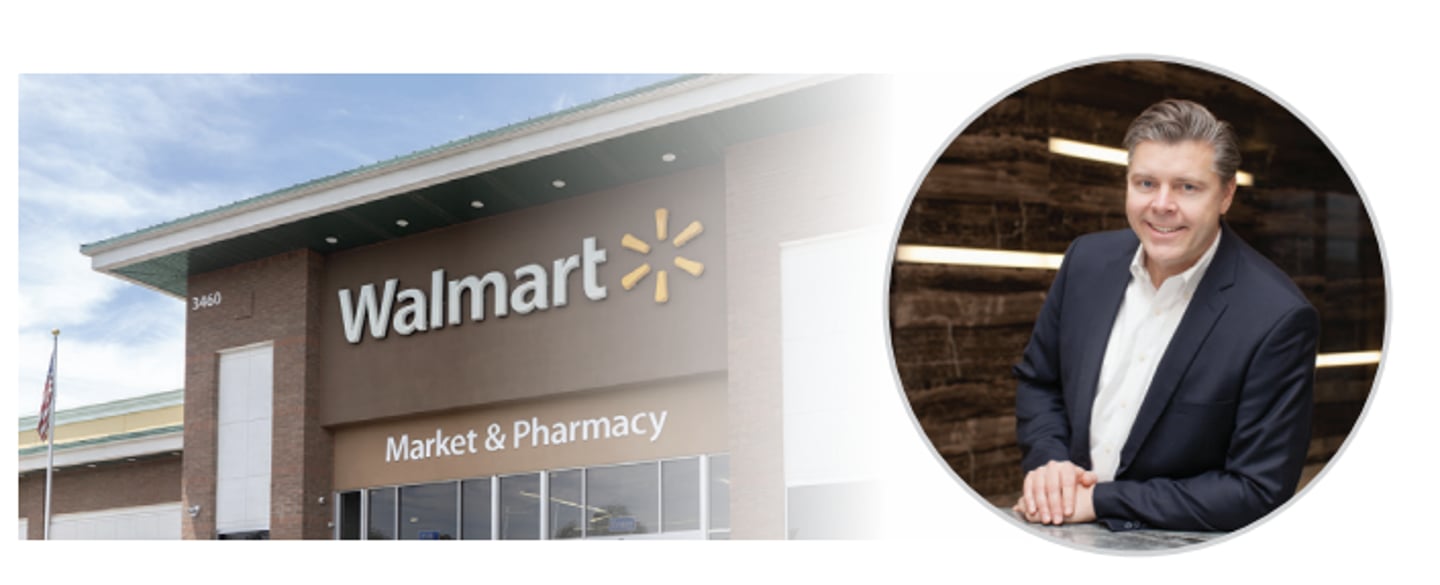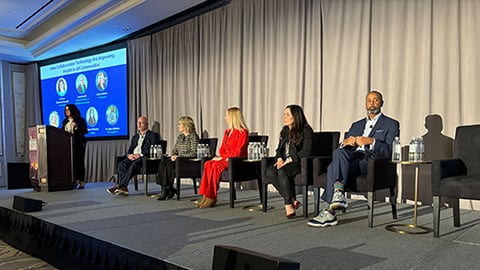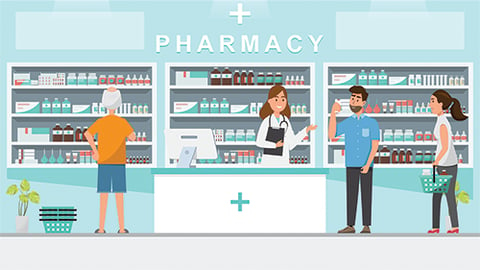Stepping up: Supermarket pharmacy report
Supermarket pharmacies, like the larger pharmacy chains, reacted quickly when the pandemic hit, serving as the neighborhood lifeline, providing COVID testing and vaccines as well as curbside pickup and delivery.
In the post pandemic environment they continue to enhance their clinical services, and consumers are satisfied. According to J.D. Power’s 2023 U.S. Pharmacy Study, supermarket in-store pharmacies scored an average of 704 points based on a 1,000-point scale. The study measures customer satisfaction with brick and mortar and mail order pharmacies.
Christopher Lis, managing director of global healthcare intelligence at J.D. Power, said supermarket pharmacy customers are most likely to say they choose their pharmacy because of the convenience of the location (81%), consistent service (52%), great personnel (42%) and discount drug cards (12%). They also are the least likely of the segments to say they will “definitely switch” pharmacies in the next 12 months (only 3%).
DSN asked several supermarket pharmacy executives to weigh in on the state of their business. Edited for length, the responses shed light on their focusses and priorities for the communities they serve.
Describe your supermarket’s pharmacy offerings and new patient facing services.
Leigh Shirley, director of pharmacy at Giant Co.: Giant has 133 pharmacies across Pennsylvania, Maryland, Virginia and West Virginia.
The Giant Company pharmacy teams are committed to creating healthier communities. Our pharmacists are not only filling prescriptions but also providing counseling, medication therapy management services, vaccines and more to support our customers.
All Giant/Martin’s pharmacies offer services like vaccines, off-site immunization clinics, prescription delivery, medication synchronization, automatic refill, text notifications, pharmacy app and pharmacy mobile pay options. In addition, some locations are specially trained to complete travel consultations for our customers traveling abroad. Our newest clinical program that we offer to our customers is point of care testing services for flu and strep. Our customers can be tested for flu and strep right in our pharmacies and have quick results.
[Read more: Serious threats, big opportunities]
Additionally, we work with Giant’s team of registered dietitians, who provide free virtual nutrition classes presented live throughout the week on various nutrition topics. Class topics change depending on the season and month. One of my favorite sessions offered is their Meal Solutions Monday series, where they showcase nutrient-dense and value-packed easy meals.
Dr. Marc Watkins, chief medical officer at Kroger Health: Kroger has more than 2,250 pharmacies in 35 states.
Kroger Health pharmacies offer a variety of services, including prescription management, vaccines and health screenings provided by specially trained pharmacists and carefully designed to meet our patients’ needs. We accept a variety of prescription discount cards, as well as most manufacturer copay cards, to help customers save money on your medications.
Additionally, our Kroger Specialty Pharmacy is a nationwide clinical pharmacy servicing patients with chronic illnesses requiring complex care in all 50 states and Puerto Rico. Our pharmacies accept most insurance plans and can process payments in store or online, and we offer preferred pharmacy pricing on most Medicare Part D plans.
Jackie Morse, group vice president of pharmacy and health at Meijer: Meijer Pharmacies can be found in every Meijer supercenter and grocery format, which equates to 263 pharmacies in Michigan, Ohio, Indiana, Kentucky, Illinois and Wisconsin.
In the last five years, Meijer Pharmacy offerings have grown significantly, serving an essential role in providing access to health services for customers. In 2019, Meijer Pharmacy commenced its drug takeback program where customers can safely dispose of their unused, unwanted or expired medications. In 2023, nearly 90,000 pounds or 45 tons of unused/unwanted medications from proper disposal were returned.
In 2022, Meijer launched ScripTalk, an assistive technology that reads prescription labels to those visually impaired, allowing them to take control of their own medications. In 2023, the retailer announced its latest partnership with Blue Cross Blue Shield of Michigan through a co-branded Medicare Advantage plan, allowing seniors to save even more on their health and wellness expenses.
To kick off 2024, Meijer also announced the launch of its personalized virtual nutrition coaching service in Michigan, inviting individuals to connect one-on- one with a Meijer registered dietitian to discuss nutrition strategies specific to their health needs.
Kevin Host, senior vice president, pharmacy, at Walmart: Walmart operates nearly 4,600 pharmacies nationwide and in Puerto Rico. We operate pharmacies in all states except North Dakota.
Our pharmacies provide our customers with affordable prescriptions (including $4 generics), vaccines (COVID-19, flu, shingles, RSV, pneumonia and more), health screenings (blood pressure, cholesterol, diabetes and more) and affordable pricing on over-the-counter supplies needed to stock a medicine cabinet. Plus, our pharmacies are open seven days a week, with convenient options for customers to get the health resources they need, including drive- thru and the ability to refill prescriptions via text.
In August 2023, Walmart launched Testing and Treatment, which is a program that allows customers to be tested for common respiratory illnesses such as the flu, strep and COVID-19, then treated, all in one place. Testing and Treatment is currently available in the following states: Alaska, Arkansas, Colorado, Florida, Idaho, Iowa, Kansas, Kentucky, Michigan, Minnesota, Nevada, South Dakota, New Mexico as of April 15, Tennessee and Washington. Further, Walmart began specialty pharmacy operations in 2003 and has recently rolled out Specialty Pharmacies of the Community (SPOCs) within select Walmart pharmacies nationwide, focusing on core areas, including viral infections and inflammatory conditions.
[Read more: The future of AI in pharmacy]
We currently have over 87 HIV-focused SPOCs open in 12 states (Arizona, Colorado, Nevada, Virginia, North Carolina, Tennessee, Texas, New Jersey, New York, Florida, Georgia and Connecticut). We currently have six autoimmune-focused SPOCs open in four states (Louisiana, New York, Texas and Rhode Island).
On World AIDS Day last year, we launched an HIV screening pilot at two Walmart pharmacies in Virginia, which offers HIV screenings and results during the pilot phase. We’re currently looking at expanding that.
Angie Nelson, senior vice president, pharmacy at Hy-Vee: Hy-Vee operates more than 275 retail pharmacies across its eight-state region, which includes Illinois, Iowa, Kansas, Minnesota, Missouri, Nebraska, South Dakota and Wisconsin.
At Hy-Vee, we’ve invested in a variety of pharmacy services designed to bring more value and support to our patients.
From the COVID-19 pandemic, we saw a surge in demand for vaccination services—and continue to see high demand today. Our pharmacies serve as vaccination destinations, offering a quick, easy and convenient experience for patients. To make it even easier, we don’t require appointments and most of our vaccines don’t require prescriptions.
To streamline our operations, we’ve also developed an online vaccine scheduling tool that allows patients to schedule vaccinations in advance.
In our continued mission to increase healthcare access, we’ve developed a fleet of mobile health units to deploy to communities across the Midwest to provide pharmacy services like vaccinations and health screenings to workplaces and other organizations. We are one of only a few retailers in the nation to operate mobile health units like this.
How are you addressing health equity and SDOH?
Shirley: Our pharmacies continue to provide vaccine clinics in our communities. We have begun partnering with local immunization coalitions and organizations to provide vaccines to populations who would otherwise be left out. We also provide lunch-and-learn sessions within our communities. We have presented on vaccines, medication adherence and more with the help of our registered dietitians. In addition, programs such as our point of care testing are aimed at expanding patient access to health care. Patients who may not be able to afford an ER trip are still able to get tested for strep and flu at much more affordable costs by walking into our pharmacies.
Watkins: Kroger Health has several ongoing initiatives that highlight our commitment to bringing equitable healthcare services to people who need them most. These include the following: We are collaborating with Performance Kitchen to offer medically tailored meals—the first time Kroger Health is offering evidence-based, registered dietitian approved meals that will offer nutrition intervention for people who are living with various health conditions.
We also recently launched a Smart Benefits program that combines Kroger Health’s services with Soda Health’s &more platform. This program allows participating Medicare Advantage, Medicaid and employer benefits program recipients to receive certain pharmacy,
nutrition services and other eligible benefits at The Kroger Co.’s Family of Pharmacies, in addition to purchasing eligible food and over-the-counter health items.
Our telenutrition and telehealth services also level the playing field for people who may not be able to physically get to a healthcare professional. Our registered dietitians will take patients’ dietary restrictions, varying health conditions (when appropriate), relationship with food, culture, ability and desire to cook and more into consideration to teach them how to nourish your body.
Our Race to Vaccinate program allows members of our community to meet with our pharmacists, dietitians and clinicians to see how they can perform at their best and live life at full speed.
Since 2018, Kroger Health and EVERFI have worked together in efforts to reduce the number of young adults misusing prescription medications, with a focus on reducing opioid-related deaths in the U.S. The Prescription Drug Safety curriculum is a valuable resource, sharing information about the potential for prescription medication misuse as well as tools students can use to make safe decisions and understand early warning signs of addiction.
[Read more: Self checkout checkup]
Finally, Kroger has made great strides with its Zero Hunger|Zero Waste initiative. In 2023, we achieved our goal to donate 3 billion meals to our communities by 2025, more than two years ahead of schedule.
Host: We understand SDOH and behaviors impact 70% of healthcare outcomes, and by creating Walmart offerings to help address SDOH and behaviors, we can reach people earlier in their healthcare journeys, focus on preventive health, make health care better and reduce the costs of health care.
In October 2022, we launched Walmart Healthcare Research Institute to help increase community access to healthcare research and innovative medicines by focusing on diseases that impact our communities. Our goal is to help promote safer, higher quality and more equitable health care by supporting research efforts that ultimately could improve safety and effectiveness for all.
In 2022, we also launched pilot programs to help with early access to healthcare professionals, access to healthy food and low-cost self- management tools. Further, we have engaged key partners to assist us in the specific management of conditions and disease states.
Nelson: One of our newest health care strategies is centered around Food as Medicine. By combining the expertise of our pharmacists with our team of registered dietitians—as well as our wide in-store selection of organic and specialty grocery items—we are helping individuals prevent and manage chronic conditions like diabetes, heart disease and obesity through simple dietary and nutritional changes.
We recently joined NACDS’s Nourish My Health public education campaign, which aims to increase access to nutritional resources, vaccinations and health screenings to improve health outcomes.
Most recently, we teamed up with Soda Health to launch a new health and wellness benefits program that incentivizes Medicaid, Medicare and other health insurance members to redeem personalized benefits for healthy food, nutritional support, medications and other everyday healthcare items at their local Hy-Vee.
We’ve also transferred our expertise in this area to our local communities. At the 2022 White House Conference on Hunger, Nutrition and Health, we pledged to deliver 30 million meals to vulnerable communities by 2025 and have already surpassed that goal through our ongoing effort to provide 100 million meals to Feeding America-affiliated food banks across the Midwest by the end of 2024. Additionally, we announced at the conference that we would educate 100,000 Americans in areas of low food access on healthy eating and nutrition by 2026, and we are on track to reach this milestone with the help of our team of registered dietitians.



